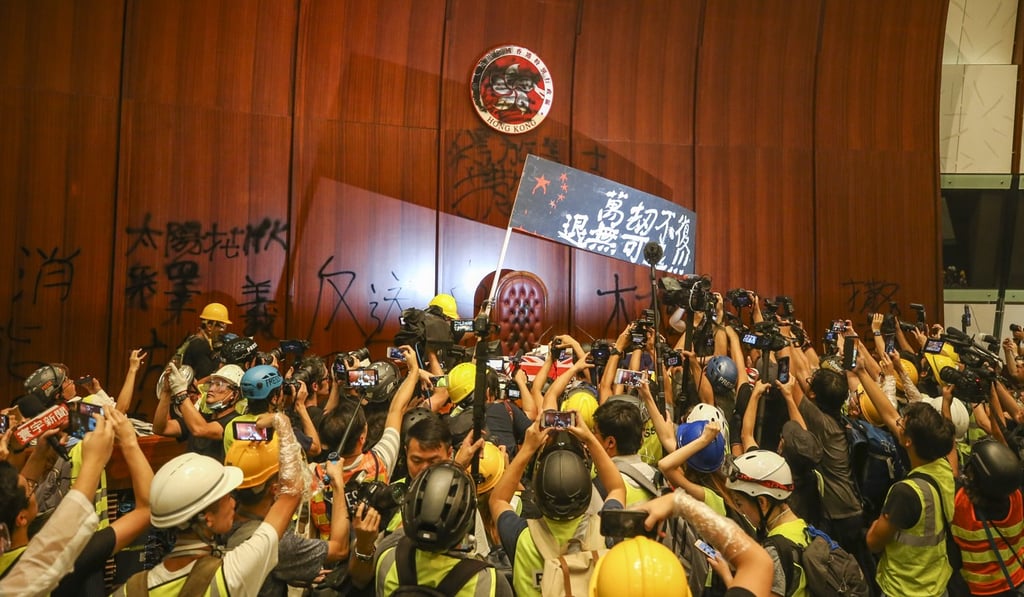Advertisement
Hong Kong student leaders reject government’s offer of private meeting about extradition protests, calling it ‘too little, too late’
- Student leaders say government invited them for meeting – but they turned it down as not enough sectors of society would be present
- University student union leader says: ‘We don’t want it to be just a public relations stunt’
Reading Time:3 minutes
Why you can trust SCMP

In what appears to be the first olive branch extended to Hong Kong’s angry young people, the government has invited university students to a private meeting about the recent protests that shocked the world.
Student leaders from the University of Science and Technology (HKUST) and Chinese University on Thursday confirmed the government had invited them for a dialogue through the schools’ administration – but said they rejected the offer.
“We do not want it to be just a public relations stunt,” said Jacky So Tsun-fung, president of Chinese University’s student union. “We will only consider it after the government addresses our demands.”
Advertisement
The government’s overture came after hundreds of mostly young protesters stormed the city’s legislature, writing slogans on the wall, defacing Hong Kong’s official emblem and smashing equipment, furniture and work areas.

Advertisement
Among the protesters’ demands were for Chief Executive Carrie Lam Cheng Yuet-ngor to fully withdraw the now-suspended extradition bill and to order an independent inquiry into the use of force by police during clashes on June 12.
Advertisement
Select Voice
Select Speed
1.00x